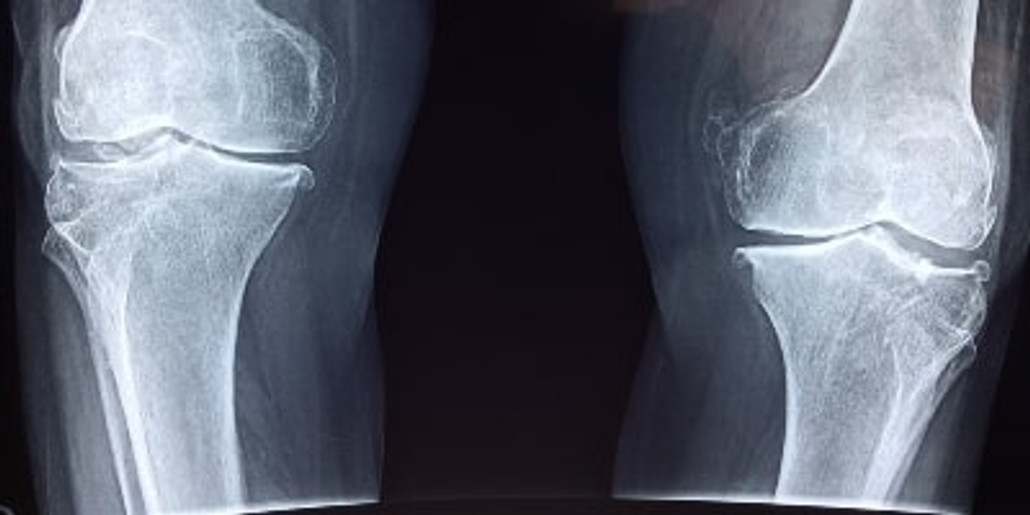Posted by Carol Fergishire on Jun 1st 2023
Tea and Bone Density - Can It Help?
Tea, a fragrant elixir from ancient lands, an emblem of hospitality, and a synonym for warmth. For countless generations, it's been more than just a beverage; it's a medicinal aid, a cultural staple, and an instrument of ritual and mindfulness. Its influence stretches from the verdant tea gardens of China and India to the bustling streets of New York and London. Today, however, we step away from the usual musings on tea and delve into the scientific realm - a territory where the aromatic leaves meet bone density.
The Osteoporosis Dilemma
Osteoporosis – a skeletal condition characterized by low bone mass and deterioration of bone tissue – is becoming a global health concern. It leads to increased bone fragility and risk of fractures, particularly of the hip, spine, and wrist. It's often considered an unavoidable companion of aging. However, could the solution, or at least a preventative measure, be lurking in your pantry? This brings us to the core question of our exploration - can regular tea consumption play a role in boosting our bone density?
Tea - A Brew for Your Bones?
You might be aware that tea is brimming with antioxidants, namely polyphenols, that bestow it with a myriad of health benefits. But, its potential role in maintaining bone health is a road less travelled. Intriguingly, the initial research we have in this area points towards a positive relationship.
Flavonoids – Nature's Little Protectors
All teas, whether it's the soothing green, the robust black, or the delicate white, contain flavonoids - a type of polyphenol. These naturally occurring compounds are lauded for their antioxidant, anti-inflammatory, and anti-microbial properties. But what do they have to do with our bones?
Several scientific studies have suggested that flavonoids may stimulate the formation of bone-building cells (osteoblasts) and inhibit the formation of cells that break down bone tissue (osteoclasts). Hence, flavonoids can potentially play a crucial role in maintaining the balance between bone formation and breakdown, thereby improving bone density.
The Green Tea and Bone Density Correlation
The star of our bone health research, however, seems to be green tea. Filled to the brim with catechins, a type of flavonoid, it's often hailed as a superfood. Emerging research indicates that its regular consumption may be linked with higher bone mineral density.
A 2017 study conducted on postmenopausal women concluded that green tea extract significantly improved bone metabolism markers and cognitive function. Yet, the story of green tea and bone health remains an unfinished book, necessitating more comprehensive and large-scale studies.
Words of Caution
While the research so far seems promising, we must take it with a grain of salt. Most studies have been observational, relying on participants' self-reported tea consumption, which could be subject to inaccuracies. Also, the specific type and quantity of tea, the brewing method, and the population studied, all add layers of complexity to these findings.
Furthermore, excessive consumption of tea, especially when brewed too strong, can lead to other health problems like kidney stones due to high oxalate content, or iron-deficiency anemia as tea can inhibit iron absorption. Moderation, as with all things, appears to be key.
The Brew Spectrum: Different Teas, Different Benefits
Green Tea
Already discussed as a likely candidate for enhancing bone density, green tea offers more than just catechins. Its rich content of vitamins (particularly vitamin D), minerals, and antioxidants position it well for overall health benefits. Plus, the presence of a unique amino acid, theanine, provides the calming effect green tea is famous for.
Black Tea
Though it undergoes a more intense oxidation process, black tea retains a substantial quantity of flavonoids. One observational study showed that women who regularly consumed black tea had a lower risk of developing osteoporosis. Although promising, it's important to remember that correlation does not imply causation, and more rigorous research is needed.
White Tea
This least processed tea variety boasts a high level of antioxidants and anti-inflammatory properties. While direct research on white tea and bone health is sparse, its high catechin and flavonoid content might contribute to bone health in ways similar to green tea.
Oolong Tea
A semi-fermented tea, Oolong, sits between green and black tea in terms of oxidation and benefits. Some animal studies suggest oolong may prevent bone loss. However, these findings need to be confirmed in human trials.
A Closer Look at the Research
Research into the relationship between tea consumption and bone health has been ongoing for several years, although it's important to note that most studies are observational in nature.
For instance, a study in the American Journal of Clinical Nutrition observed that habitual tea drinkers had a higher bone mineral density than non-tea drinkers. In another study, postmenopausal women who drank tea had a lower risk of developing osteoporosis than those who did not.
The potential mechanisms behind tea's beneficial effects on bone health are still under investigation. Some studies suggest that the flavonoids in tea can inhibit osteoclast differentiation and activity (the cells responsible for breaking down bone), thereby reducing bone loss.
Another aspect that is often highlighted in these studies is the cumulative effect of tea drinking. That is, the benefits of tea on bone health might not be immediate, and may instead require habitual consumption over years. Therefore, long-term observational studies provide valuable insights into this relationship.
Final Thoughts
As our understanding of tea deepens, it's evident that its benefits extend beyond the joy and serenity of a tea ceremony or the comfort of a morning routine. The potential impact of tea on bone health marks a promising area of exploration in nutritional science. However, as we navigate through this emerging scientific narrative, it's important to remember that tea should be one element of a balanced diet and a healthy lifestyle, not a sole strategy for preventing or managing osteoporosis.
Tea lovers can rejoice in the fact that their preferred beverage might offer more than just a pleasant aroma and taste. And for those not yet initiated into the world of tea, perhaps now is a good time to discover the potential health benefits it may hold, one brew at a time.
And there we have it, an in-depth look into tea and bone density, brewed with a sprinkle of science and a dash of culture. Happy sipping!

